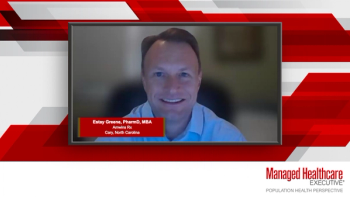
Estay Greene, PharmD, MBA, outlines the main barriers that need to be addressed from a payer perspective in the treatment of high-risk patients with diabetes.

Estay Greene, PharmD, MBA, outlines the main barriers that need to be addressed from a payer perspective in the treatment of high-risk patients with diabetes.
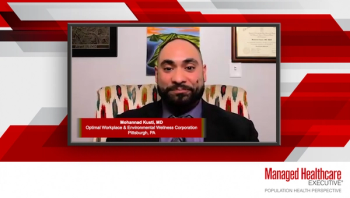
Mohannad Kusti, MD, examines opportunities to embrace recent innovations like telehealth consultations, remote monitoring, and clinical partnerships with top fertility clinics and research institutions to enable cutting-edge, personalized treatment plans.

Mohannad Kusti, MD, examines how comprehensive fertility benefits empower talent retention, yield a competitive edge, help prevent negative complications from improper fertility care, and mitigate costs from resulting absenteeism.

A medical expert discusses recent data and shared testimonials to educate employers on the value of fertility benefits, including contributions to diversity, equity, and inclusion.

Mohannad Kusti, MD, clarifies misconceptions around fertility benefits and their role in attracting, retaining, and empowering top talent.

Mohannad Kusti, MD, examines gaps in employer fertility coverage and reshaping employer perspective on fertility benefits.
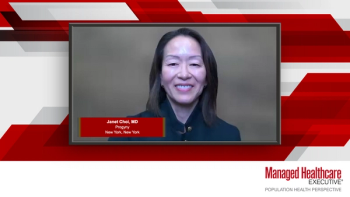
Janet Choi, MD, gives closing thoughts on innovations in fertility benefits.

Janet Choi, M.D., spotlights the vital role of patient advocates in navigating fertility benefits and tackling care access gaps exacerbated by economic barriers, inadequate coverage and lack of emotional support throughout assisted reproductive treatment.

Janet Choi, M.D., examines enhancing the fertility patient experience and medical access from preconception through birth by reducing delays and barriers across the assisted reproductive treatment journey.

Expert, Janet Choi, M.D., advocates expanding financial coverage for inclusive fertility services to LGBTQ+ individuals and prospective single parents by choice seeking assistance to start families, countering disparities by making evidence-based treatments more accessible.

Janet Choi, M.D., discusses patient cost burden for fertility care and factors that may help reduce preterm births and miscarriages.

An expert examines the definition and benefits of fertility preservation options.

Janet Choi, MD, analyzes fertility care access, balancing the significant benefits of evidence-based reproductive treatment against the economic obstacles that restrict patient utilization of safe, effective interventions known to improve outcomes.

Sean Tipton underscores the importance of payer adoption of new treatments and technology which can lead to better patient outcomes.

An expert shares insight into expanding employer fertility coverage to maximize benefits and access to fertility care for employees.
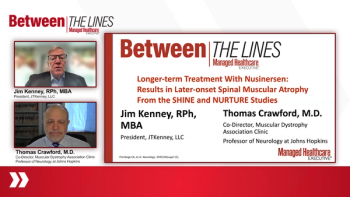
Critical coverage considerations for SMA therapies are discussed.

Expert, Sean Tipton, discusses the current in vitro fertilization landscape and AI's potential to enhance fertility outcomes, pending sufficient payer coverage to drive clinical adoption.

An expert spotlights how open data communication between payers and fertility clinics can drive collaboration expanding coverage for proven, successful treatments that crucially improve assisted reproductive outcomes when timely access barriers are eliminated through aligned medical policies.

Important takeaways for patients, payers, and providers are covered by expert faculty.

Robert Spiera, M.D., highlights the significance of the SAPHYR trial, presenting a nonsteroid option for patients with refractory polymyalgia rheumatica that addresses unmet needs, reduces long-term corticosteroid-related burdens and benefits healthcare providers, payers, and patients alike.

Thomas Crawford, MD, discusses exciting new findings from the pivotal NURTURE study.

Robert Spiera, M.D., discusses the criteria for determining the suitability of sarilumab in polymyalgia rheumatica patients, with a particular focus on indicators of steroid intolerance.
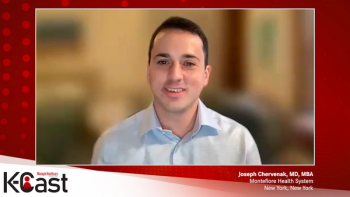
In his final thoughts, Dr. Chervenak provides recommendations for optimal patient outcomes by tailoring design of health benefits.

Longitudinal trends in hospitalization rates in patients with later-onset SMA (SMA) treated with nusinersen up to 4.5 years are discussed. Results from the CHERISH and SHINE studies are discussed.

Delving into the realm of refractory polymyalgia rheumatica, Robert Spiera, M.D., discusses the potential inclusion of sarilumab in revised guidelines. He addresses payer concerns regarding prior authorization while emphasizing the importance of ensuring appropriate patient access through evidence-based approaches.

Further discussion of the SHINE study explores characteristics unique to the trial's patient population.

Socioeconomic factors impacting patients seeking infertility treatment are highlighted.

Robert Spiera, M.D., highlights the impact of sustained remission on polymyalgia rheumatica treatment, emphasizing improvements in quality of life and steroid-related effects.

Robert Spiera, M.D., explores sarilumab’s impact on polymyalgia rheumatica, emphasizing reduced steroid use and enhanced quality of life.

A medical expert underscores the significance of infertility treatment coverage.